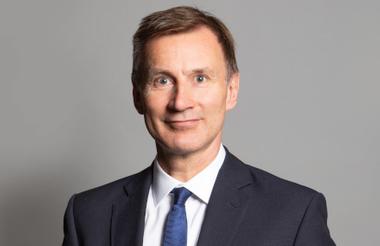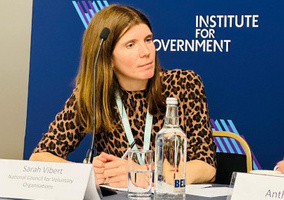There has been “little or no improvement” to the operating environment of charities since last year’s autumn statement, a coalition of charity umbrella bodies has told the chancellor.
The Civil Society Group urged Jeremy Hunt to take action to alleviate the “challenging financial environment in which the voluntary sector continues to operate”.
Ahead of the spring budget on 6 March, the group proposed four main policy measures aimed to address immediate and long-term pressures around social security, public services, levelling up, charity tax and compliance systems.
The Civil Society Group includes nearly 90 organisations including ACEVO, Charity Finance Group (CFG), Charity Retail Association (CRA) and NCVO.
Separately, the Charity Tax Group (CTG) suggested changes to VAT relief and gift aid while the CRA also urged for an extension of business rates relief.
‘Many organisations now facing existential threat’
In its 2024 submission, the Civil Society Group said that “key asks for the sector, if brought in by the government, would be of significant benefit to our wider society, as the support for charitable organisations helps them respond to need and increase their impact in the public interest”.
The group reiterated calls for an uplift to government contracts for public services in line with inflation to cover the true costs of delivering public services and to address the issue of irrecoverable VAT for charities among other things.
It continued to back calls for the introduction of an “essentials guarantee” which would ensure that life’s essentials are provided.
The group also asked the Treasury to “extend funding for levelling up funds, including the UK Shared Prosperity Fund to 2030 to match the levelling up mission’s timetable” and to protect fiscal incentives for charitable bequests or consult with the sector on any proposals for reforms.
Richard Sagar, head of policy at CFG, said: “Charitable and voluntary sector organisations continue to work harder than ever to support their communities, particularly those that remain hardest hit by ongoing economic pressures.
“At the same time, we have seen very few real improvements in the sector’s operating environment; very little has changed economically or politically since chancellor Jeremy Hunt presented his autumn statement in November 2023.
“Many organisations that are doing important and often vital work are now facing existential threat. The Civil Society Group is calling upon the government to do more to ensure the most vulnerable and disadvantaged people are better protected, and that charities can continue to provide their critical services.”
CTG: Charity VAT system must be improved
In a separate submission, CTG proposed short and long-term tax measures such as extending VAT relief to “product donations for the direct support of UK charity beneficiaries” and modernising gift aid.
“There has been much speculation in the press about the possibility of tax cuts. Were a decision to be taken to reduce the basic level of income tax, as originally envisaged in the March 2022 Budget, this would have a very serious impact on the amount that charities are able to receive in gift aid,” CTG wrote.
“In March 2022, the government announced plans to introduce a three-year transitional relief to help charities by maintaining the level that charities can claim at 20%.
“CTG has previously estimated that a 1% reduction in the income tax rate would cost charities £250m over three years. If the government were to reduce the income tax rate in the forthcoming budget, we urge it to introduce a transitional relief to help charities, as originally envisaged in the March 2022 budget.”
CRA: ‘Value of charity shops often underappreciated’
Meanwhile, CRA said that the value of the UK’s estimated 10,200 charity shops “in supporting economic growth, environmental sustainability, reducing pressure on the public finances and supporting those in need is often underappreciated”.
In its submission, it demanded measures including the allocation of additional resources to tackle retail crime and addressing “the anomaly whereby some charity shops do not qualify for charitable rate relief”.
“Business rates relief is essential to enabling charity shops to thrive and generate such substantial value to the local community as well as reducing local authority waste management costs,” it wrote in its submission.
“In addition to ongoing support for the current mandatory 80% relief for charity shops, we are asking for support for wider usage of discretionary relief to top up the relief to 100% and for the resolution of an anomaly which prevents some charity shops from receiving any relief at all.”
Related articles












